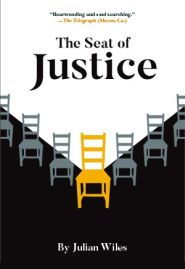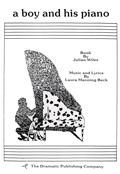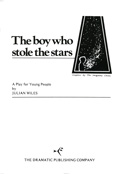
The Seat of Justice
- Full Length Play, Drama, 1950s
- 16M, 10F
- ISBN: S2R
In the era when segregation and "separate but equal" were the law of the land, Levi Pearson, a black farmer in rural Clarendon County, South Carolina, bravely took a stand for justice.
Description
- Full Length Play
- Drama
- 120 minutes
- Time Period: 1950s
- Target Audience: Teen (Age 14 - 18), Appropriate for all audiences, Adult
- Performance Group:
- Community Theatre, College Theatre / Student, Professional Theatre, High School/Secondary
Local attorney Harold Boulware and Thurgood Marshall of the NAACP Legal Defense Fund agree to represent them but only if they can secure not one but 20 plaintiffs for the case. Despite the threat of reprisals, more than 150 parents step forward and agree to sign the petition that launches Briggs v. Elliot, the first desegregation lawsuit in U.S. history. The plaintiffs lose their case in federal court in Charlestown in a two to one ruling, but the Briggs case is not finished. Briggs v. Elliot is appealed to the United States Supreme Court where it joins five other desegregation cases from Maryland, Virginia, the District of Columbia and Kansas -- all now consolidated into one case and now known as Brown v. Board of Education.
On May 17, 1954, the Supreme Court ruled on this landmark case, Chief Justice Earl Warren declaring from the bench that "the doctrine of separate but equal has no place" and that desegregation should take place with "all deliberate speed."
REVIEWS:
"It brings to life the fight for civil rights in a way that no textbook can achieve."
The Telegraph
"Heartrending and soul searching."
The Telegraph (Macon, GA)
Characters
- Casting: 16M, 10F
- Casting Attributes: Roles for Children
Available Material
| Name | Price |
|---|---|
|
The Seat of Justice Script
This is optional.
Order Now
In the era when segregation and "separate but equal" were the law of the land, Levi Pearson, a black farmer in rural Clarendon County, South Carolina, bravely took a stand for justice. His children walk nine miles to school each day while white children ride new school buses. Pearson files suit in federal court asking for equal educational opportunities for his children. Though his initial case is thrown out of court on a technicality, Levi rallies their neighbors to launch a new lawsuit demanding equal educational facilities for their children. |
$19.95 |




